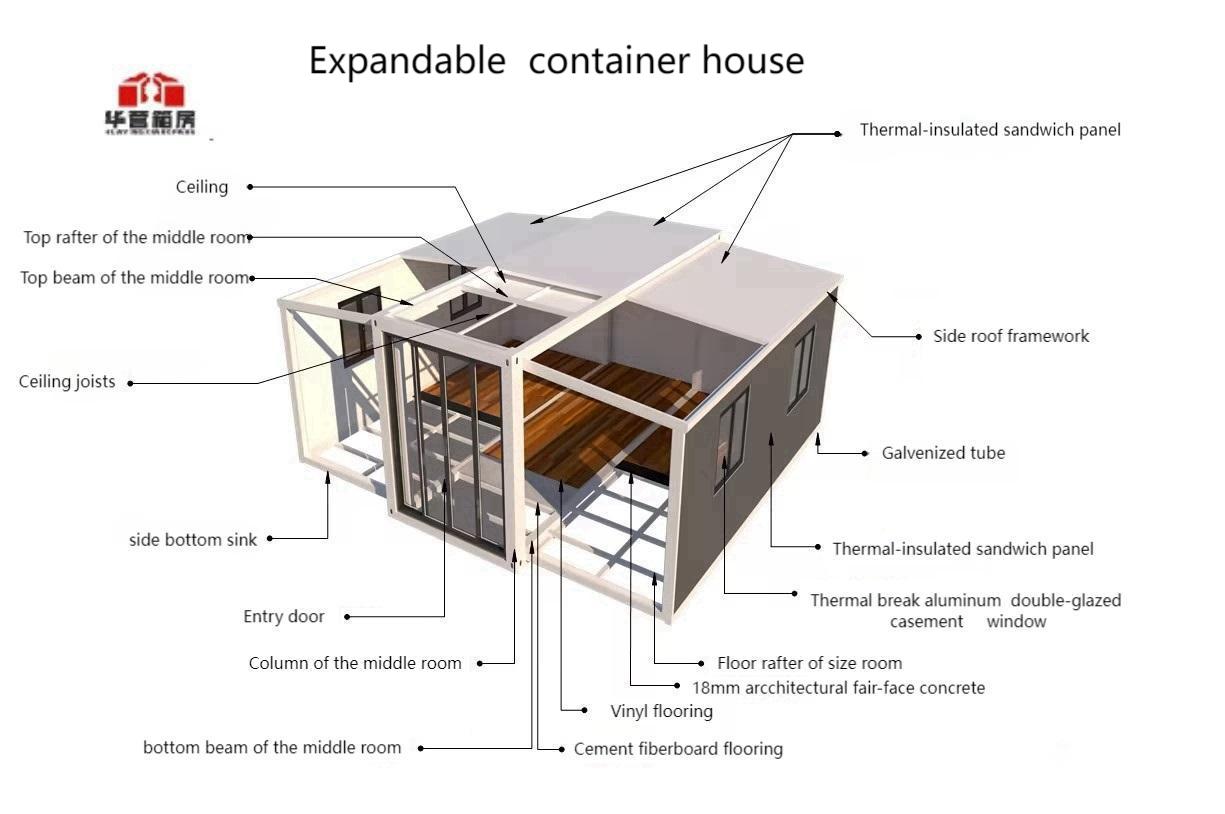Discover the key differences between big mobile homes and modular houses. Learn how both offer affordable, customizable housing solutions with faster build times than traditional homes. Explore installation videos, structural diagrams, and practical advice to determine which option best fits your lifestyle and budget.
Redefining Modern Housing: What’s Possible Today
Imagine moving into your dream home in weeks instead of months—without sacrificing space or quality. That’s the reality with today’s big mobile homes and modular houses. As housing costs soar, these innovative options deliver spacious, customizable living at 20-40% less than site-built homes. Whether you need a family residence, vacation getaway, or rental property, both solutions challenge traditional construction timelines and budgets.
Mobile Homes vs. Modular Houses: Clearing the Confusion
Though often confused, these housing types have distinct characteristics:
Big Mobile Homes (Manufactured Homes)
Built entirely in factories on a non-removable steel chassis, these homes comply with HUD standards. Modern versions defy stereotypes—many exceed 2,500 sq ft with vaulted ceilings and designer kitchens. Their defining feature? Transportability. While typically placed permanently, they retain wheels for relocation potential.
Modular Houses
Constructed in factory-built sections (modules) that assemble on-site, modular houses meet local building codes just like traditional homes. This means higher-end finishes and architectural flexibility—think Cape Cods, ranches, or contemporary designs. Unlike mobile homes, they’re permanently affixed to foundations.
Why Homeowners Are Making the Switch
Both options deliver compelling benefits over conventional construction:
Speed You Can’t Beat
While traditional builds take 8-12 months, factory construction slashes timelines. Mobile homes complete in 4-8 weeks, while modular houses finish in 12-16 weeks—including site prep and assembly. This accelerated process means moving in before your conventional-building neighbor has finished framing!
Budget-Friendly Excellence
Factory precision reduces material waste by up to 30%, translating to significant savings. Expect these base prices (excluding land and site work):
- Big Mobile Homes: $80-$150/sq ft
- Modular Houses: $120-$220/sq ft
Compare that to $150-$300+/sq ft for site-built homes—plus factory control prevents weather delays that inflate traditional budgets.
Customization Unleashed
Forget cookie-cutter designs. Modern manufacturers offer:
- Floor plan modifications (expand rooms, relocate walls)
- Premium finishes (quartz counters, hardwood floors)
- Energy upgrades (solar-ready roofs, triple-pane windows)
- Smart home integration packages
See the Installation Magic Unfold
How does a house materialize in days? Watch this time-lapse of a modular home installation. The precision will amaze you:
Your browser does not support the video tag.
Key takeaway: Factory-built sections arrive 90% complete—even with cabinets and lighting pre-installed. Cranes position modules onto the foundation, followed by seamless joining of utilities and finishes.
Anatomy of Quality: Inside Your Future Home
Wondering about structural integrity? This cross-section reveals why these homes outperform many site-built counterparts:

Critical components shown:
- Steel Chassis (Mobile Homes): Reinforced I-beam frame for transport stability
- Engineered Joists: Precision-cut for optimal load distribution
- Moisture Barrier Systems: Advanced wraps prevent water intrusion
- High-Density Insulation: Exceeds code requirements in most zones
- Hurricane Straps: Modular homes feature foundation-to-roof metal connectors
Choosing Your Path: Key Decision Factors
Still debating? Consider these practical aspects:
Land & Zoning Reality Check
Mobile homes face more zoning restrictions—many suburbs limit them to designated parks. Modular houses typically qualify as standard residences in most zones. Always verify:
- Local covenants and zoning classifications
- Minimum square footage requirements
- Foundation specifications (modular homes require permanent foundations)
Long-Term Value Considerations
Modular houses generally appreciate like traditional homes. Mobile homes typically depreciate unless placed on owned land. Financing also differs:
- Mobile Homes: Personal property loans (higher rates) or MH Advantage® programs
- Modular Houses: Conventional mortgages (same as site-built homes)
Your Lifestyle Blueprint
- Choose a Big Mobile Home if: You prioritize budget over resale value, need relocation flexibility, or seek affordable park living with amenities.
- Choose a Modular House if: You want equity growth, architectural uniqueness, or to build in established neighborhoods with strict codes.
Future-Proofing Your Investment
Maximize your home’s longevity with these pro tips:
- Upgrade Insulation: Add exterior rigid foam for thermal efficiency
- Choose Metal Roofing: Lasts 2-3x longer than asphalt shingles
- Install Pier Systems: Professional underpinning prevents settling
- Document Everything: Keep factory specs for insurance and resale
The Verdict: Freedom to Live Better
Whether you choose a spacious big mobile home or a custom modular house, you’re embracing smarter housing. Both options slash construction timelines, reduce costs, and minimize environmental impact—all while delivering comfortable, modern living spaces. As factory techniques advance, the line between “alternative” and “mainstream” housing continues to blur. Your dream home might just come with assembly instructions!
Ready to explore? Reputable manufacturers like Champion Homes and Clayton offer virtual design tools on their websites. Many local dealers also provide 3D model tours—no hard hat required.
